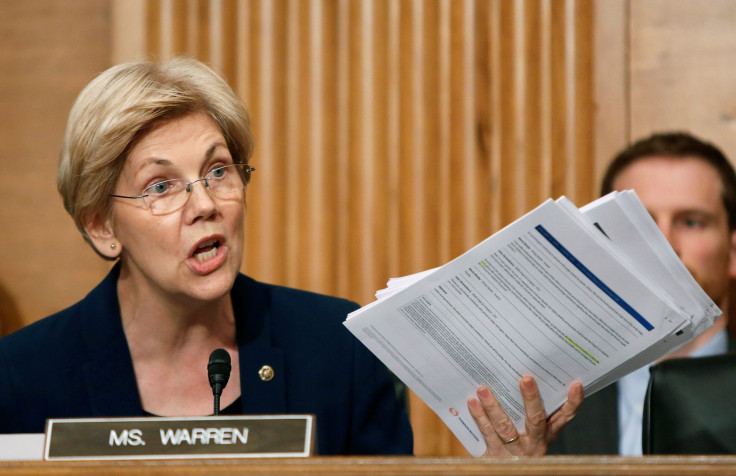Donald Trump’s Conflicts Of Interest: What Is Emoluments Clause Bill Proposed By Elizabeth Warren, Democrats?

As questions arise around how President-elect Donald Trump intends to handle numerous questions over potential conflicts of interests involving his business empire, Democratic lawmakers led by Senator Elizabeth Warren of Massachusetts plan to introduce a bill that invokes a little-used Constitutional mandate called the Emoluments Clause.
.@SenatorCardin, @ChrisCoons, @SenatorDurbin, @SenJeffMerkley & I will introduce a bill in January to implement the Emoluments Clause.
— Elizabeth Warren (@SenWarren) December 15, 2016
Placing assets in a true blind trust has been the standard for previous presidents. Our bill makes clear we expect Trump to do the same.
— Elizabeth Warren (@SenWarren) December 15, 2016
The legislation will reportedly require Trump to fully disclose any of his financial assets that could represent a conflict of interest and have the funds placed in a blind trust, The Hill reported. It would also consider any violation a “ high crime or misdemeanor under the impeachment clause of the U.S. Constitution."
Warren, who in tandem with Sen. Bernie Sanders of Vermont, has been on the warpath against Trump before and after his election victory and has vowed to stand up against the Republican businessman.
"The American people deserve to know that the President of the United States is working to do what's best for the country — not using his office to do what's best for himself and his businesses," Warren said in a statement.
The clause, sometimes referred to as the ineligibility clause, hinders elected officials from accepting gifts, titles, or office from a foreign government, which could pose danger for Trump. The Trump Organization, the main hub of his business dealings, has many real estate holdings around the globe and several other interests, though Trump has insisted the business be fully controlled by his children when he takes office.
Admittedly, the letter of the clause can be construed as vague: "No Title of Nobility shall be granted by the United States: And no Person holding any Office of Profit or Trust under them, shall, without the Consent of the Congress, accept of any present, Emolument, Office, or Title, of any kind whatever, from any King, Prince, or foreign State."
However, one law professor argues that the clause does not apply to presidents, vice-presidents or members of Congress, ProPublica reported. Professor Seth Barrett Tillman of the National University of Ireland Maynooth argues that even the country’s first president, George Washington, accepted two gifts from French officials while in office.
© Copyright IBTimes 2025. All rights reserved.





















